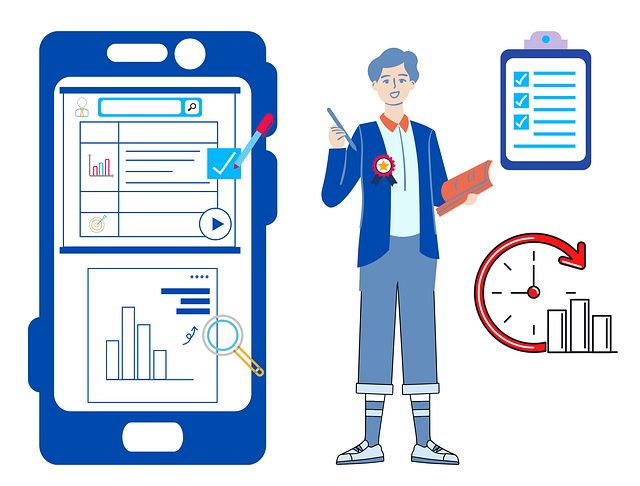AI is transforming rental lease agreements by introducing intelligent virtual assistants, streamlining processes, and enhancing user experiences. These assistants answer FAQs, provide real-time updates, and suggest modifications, ensuring accuracy and fairness in contracts. While implementing AI offers benefits like reduced manual effort and immediate answers to rent queries, challenges include data privacy, legal validity, potential reliance on technology, and initial setup costs. Key components for a successful system include capturing detailed property and tenant information, using AI to address FAQs, and dynamically generating tailored agreements, balancing automation with human judgment in complex scenarios.
“Revolutionize your rental journey with AI! In today’s digital age, Artificial Intelligence (AI) is transforming traditional lease agreements. This article explores how AI can streamline and automate rent contracts, answering frequently asked questions along the way. From understanding AI’s role in simplifying the process to highlighting key components, we’ll navigate the benefits and challenges. Discover how this technology fosters a more efficient, user-friendly experience for both landlords and tenants, making renting easier than ever.”
- Understanding AI's Role in Streamlining Rent Agreements
- Key Components of an Efficient Lease Agreement Using AI
- Benefits and Challenges of Implementing AI for Rental Contracts
Understanding AI's Role in Streamlining Rent Agreements

AI is transforming the way we interact with legal documents, and long-term rental lease agreements are no exception. By leveraging AI virtual assistants, landlords and tenants can streamline the process of creating, negotiating, and managing rent-related contracts. These intelligent systems can answer frequently asked questions (FAQs) about lease terms, provide real-time updates on payment statuses, and even suggest modifications based on changing circumstances.
The integration of AI not only enhances efficiency but also ensures accuracy and consistency in rental agreements. It reduces the chances of human error, eliminates the need for lengthy back-and-forth communications, and allows both parties to focus on other aspects of their relationship. This technology promises to make rent agreements more transparent and user-friendly, fostering a healthier landlord-tenant dynamic in today’s digital era.
Key Components of an Efficient Lease Agreement Using AI

An efficient AI long term rentals lease agreement generation system should include several key components to ensure fairness, clarity, and automation. Firstly, it must capture all relevant details about the property, including its condition, rent amount, duration of stay, and any additional terms or conditions specific to the property or tenant. An AI virtual assistant for rent-related FAQs can help both parties by providing instant answers to common queries, streamlining the process, and reducing potential misunderstandings.
Additionally, the system should be able to generate tailored lease agreements based on user inputs. This includes adjusting clauses related to maintenance responsibilities, security deposits, pet policies, subletting restrictions, and notice periods. By leveraging AI, the lease agreement generation process becomes dynamic and adaptable, catering to a wide range of rental scenarios while maintaining legal integrity.
Benefits and Challenges of Implementing AI for Rental Contracts

Implementing AI in the form of a virtual assistant for lease agreement generation offers several benefits. It streamlines the rental process by quickly drafting and personalizing contracts based on inputted data, reducing manual effort and potential errors. An AI assistant can also provide an efficient solution to common rent-related FAQs, offering immediate answers to tenants and landlords alike, thereby enhancing customer satisfaction.
However, challenges exist. Data privacy and security are paramount; sensitive tenant information must be protected. Additionally, ensuring the legal validity of AI-generated contracts is crucial. There’s also the risk of reliance on technology, as systems may not account for unique or complex situations that require human judgment. Moreover, initial setup and training of the AI model can be resource-intensive.
AI has the potential to revolutionize long-term rental agreements by streamlining processes, ensuring accuracy, and providing a convenient experience for both landlords and tenants. By leveraging AI, lease agreement generation can be automated, saving time and reducing errors commonly associated with manual drafting. An AI virtual assistant can answer frequently asked questions (FAQs) related to rent, terms, and conditions, enhancing transparency and tenant satisfaction. However, challenges like data privacy concerns and the need for clear legal guidelines must be addressed to fully realize the benefits of AI in this domain.
